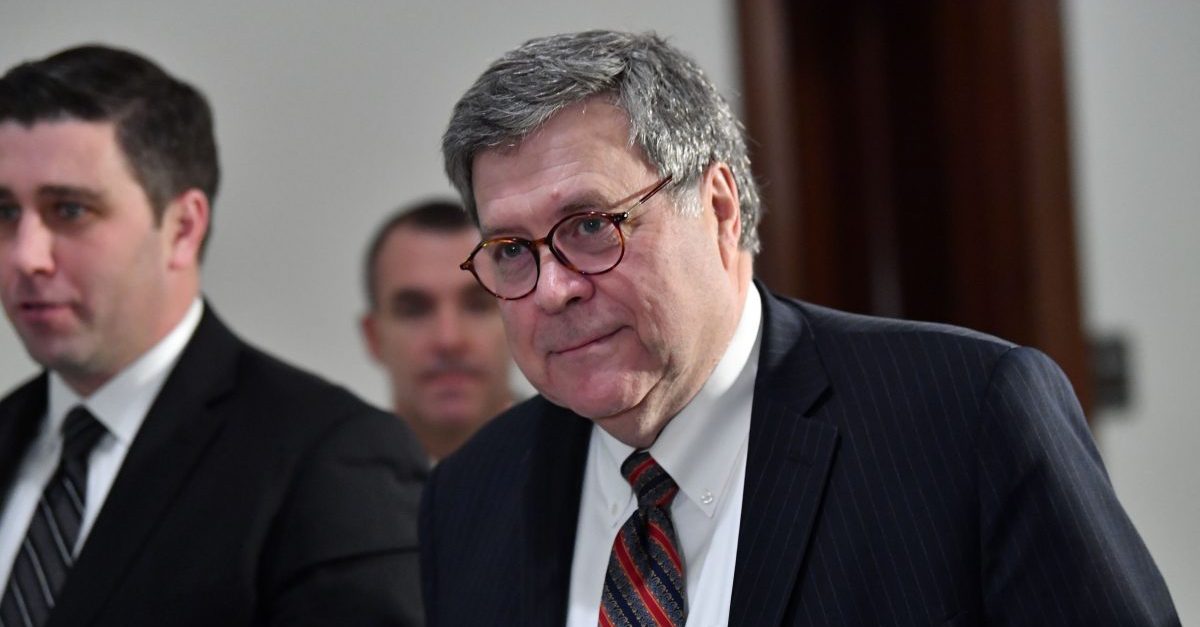
With all the fanfare and attention that can be expected after a nearly two-year-long investigation, Special Counsel Robert Mueller supplied his final report to the U.S. Department of Justice on Friday. In turn, Attorney General Bill Barr submitted a summary report of the findings late Sunday afternoon.
The top-line conclusion of the four-page summary is that President Donald Trump is decidedly not a Russian asset and that no one on his 2016 presidential campaign colluded with the Russian government.
Here’s Barr’s take on Mueller’s efforts over the course of the investigation:
In the report, the Special Counsel noted that, in completing his investigation, he employed 19 lawyers who were assisted by a team of approximately 40 FBI agents, intelligence analysts, forensic accountants, and other professional staff. The Special Counsel issued more than 2,800 subpoenas, executed nearly 500 search warrants, obtained more than 230 orders for communication records, issued almost 50 orders authorizing use of pen registers, made 13 requests to foreign government for evidence, and interviewed approximately 500 witnesses.
Still, the ranks of the Russia-scandal-centered #Resistance are feeling a bit glum and the full report is certainly going to be demanded by the president’s critics and political enemies. Those anti-Trump partisans would, of course, hope to view the extent of Mueller’s findings sooner rather than later.
Enter a portion of the Barr summary which explains why those who want the full report are going to have to wait awhile: the first two full paragraphs on page four. In this section, Barr claims that significant portions of Mueller’s report are related to “matter[s] occurring before [a] grand jury.” Such information, Barr notes, is generally protected from disclosure by Federal Rule of Criminal Procedure 6(e).
After reciting some boilerplate legalese about the “integrity” and “invaluable investigative powers of a grand jury,” Barr skips down to another block of text and dashes away hopes for any full public disclosure–or even a short order version of the redacted edition. “Given these restrictions, the schedule for processing the report depends in part on how quickly the Department [of Justice] can identify the 6(e) material that by law cannot be made public.”
Barr goes on to note that he has “requested the assistance of [Mueller] in identifying all 6(e) information contained in the report as quickly as possible.” Barr also says that “any information that could impact other ongoing matters” must also be treated delicately–though he doesn’t elaborate on how that process will work out going forward.
Law&Crime reached out to legal experts to see what potential there was for full release here. Could Congress or someone else decide that Rule 6(e) isn’t that big of a deal and seek to have it waived? That seems unlikely.
“Grand jury protections are strong,” said former New Jersey prosecutor and current Law & Crime Network host Bob Bianchi. “They can apply to court to release, but courts really try to protect against revealing grand jury data.”
But that doesn’t necessarily mean there’s no less potential for drama after this decidedly lackluster submission.
“While Mueller is strong on no Russian collusion, it surprised me given the email evidence about the Trump Tower meeting in June of 2016,” Bianchi said via email. “I saw Jared Kushner and Donald Trump, Jr. in serious trouble. The crime was completed when they agreed to meet foreigners to receive a thing of value from foreigners. The law does not require they actually achieve the objective of the conspiracy.”
Bianchi also noted the obstruction issue could have several potential outstanding leads:
I was surprised Mueller did not ‘exonerate’ Trump on obstruction. He left it to Barr and that doesn’t look good. I was very surprised that a witness (Rod Rosenstein) participated in the [James] Comey firing/obstruction case. #Conflict. I was also surprised Barr added an additional element to obstruction, that being influencing a pending proceeding. The Lester Holt interview and meeting with Russians at the White House clearly connected the firing to the investigation.
Bianchi also previewed what investigators are likely to focus on in the aftermath of Mueller’s mostly meh findings.
“I want to see if Mueller at least tried to interview Trump, Jr and Kushner,” Bianchi noted. “They all may have been approached and asserted the 5th. Watch the Southern District of New York. Individual 1 in the Michael Cohen campaign violation is Trump. His businesses, the inauguration, and the Trump Organization are all potentially on the hook here.”
National security attorney Bradley P. Moss, meanwhile, weighed in on the likelihood of the clash between investigators and the known unknowns outstanding due to Mueller’s punting on the obstruction issue.
“Congress will absolutely want details on the obstruction angle,” Moss told Law&Crime. “Prepare for a battle royale on that front.”
[Image via NICHOLAS KAMM/AFP/Getty Images]